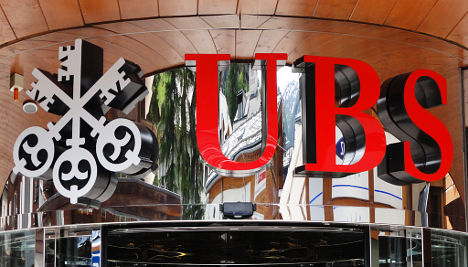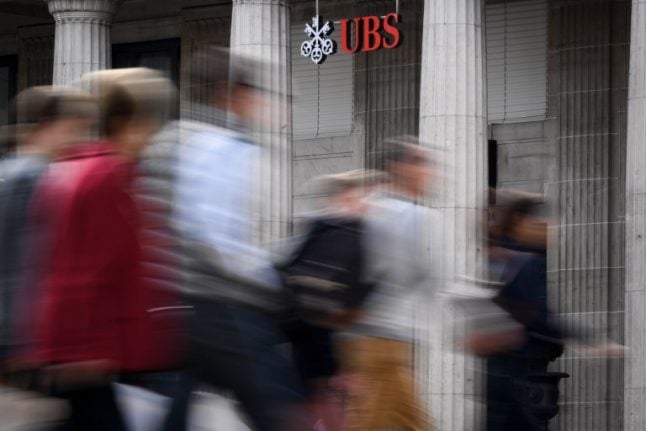Switzerland’s largest bank was among five major international banks fined a total of more than $3 billion for rigging FX markets over a five-year period from January 2008 to October 2013.
Other banks penalized included the publicly controlled Royal Bank of Scotland, HSBC, Citibank and JP Morgan.
UBS received the biggest penalty handed out by Britain’s Financial Conduct Authority (359 million francs), while the US Commodity Futures Trading Commission exacted a $290-million sum.
FINMA, Switzerland’s financial market regulator ordered UBS to “disgorge” an additional 134 million francs.
The Swiss regulator said it has also initiated enforcement proceedings against 11 persons involved in the case.
FINMA found that over an extended period of time UBS employees in Zurich “at least attempted to manipulate foreign exchange benchmarks”.
Employees of the bank also acted against the interests of their clients, the regulator said.
“Risk management, controls and compliance in foreign exchange trading were insufficient,” FINMA said.
“By breaching control requirements and owing to the misconduct of its employees, UBS severely violated the requirements for proper business conduct.”
Financial authorities in the US and the UK made similar findings.
In the UK, the FCA regulator said it fined the five banks for “failing to control business practices in their foreign exchange trading operations”.
In the US, the The CFTC said these banks were being punished for “attempted manipulation of, and for aiding and abetting other banks' attempts to manipulate, global foreign exchange benchmark rates to benefit the positions of certain traders.”
American authorities issued partial transcripts of “chatroom sessions” between traders from UBS and other banks showing efforts to manipulate currency rates.
For UBS, the latest financial blow follows penalties the bank has faced for Libor rigging and aiding tax evasion.
The bank issued a statement referring to the penalties as the “resolution of an industry-wide investigation into irregularities in foreign exchange (FX) markets”.
The statement quoted bank CEO Sergio Ermotti saying: “Today's resolutions are an important step in our transformation process and towards closing this industry-wide matter for UBS.”
Ermotti added that the bank is continuing to cooperate with “related ongoing investigations”.
In its defence, UBS said it was the first bank to “self-report potential misconduct and cooperate fully with authorities in their review of FX and related markets”.
The bank said it also took “appropriate disciplinary action” against employees involved in the matter without specifying what that action was.
UBS added that it has improved controls of its FX business and the entire firm.
The company said it has made provisions for the financial cost of the penalties for the third quarter of 2014.
'The most serious case of market manipulation seen'
FINMA director Mark Branson told Swiss media the FX case at UBS was “the most serious case of market manipulation that we have ever seen”.
The authority outlined the following examples of wrongdoing by the bank's foreign exchange dealers:
Manipulation of benchmarks: The bank's foreign exchange traders repeatedly, and over extended periods of time, attempted to manipulate foreign exchange benchmarks so as to generate profits either for the bank or third parties. In this context, there was also collusion with other banks.
Acting against the interests of clients and counterparties: Foreign exchange traders acted unacceptably frequently against the interests of their clients and counterparties. This conduct was partly coordinated with other banks.
Several foreign exchange traders:
– actively triggered client stop-loss orders to the advantage of the bank
– engaged in front-running
– engaged in risk-free speculation at the clients' expense when making partial fills, where at least part of clients' profitable foreign exchange transactions were credited to the bank
– disclosed confidential client identifying information to third parties
– in individual cases engaged in deception regarding sales mark-ups and excessive mark-ups associated with an internal product of the bank.
FINMA slammed UBS for having insufficient risk assessment and controls to prevent this kind of activity, as well as a lack of proper compliance controls.
Fo more on the authority's ruling, click here.



 Please whitelist us to continue reading.
Please whitelist us to continue reading.
Member comments